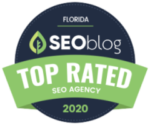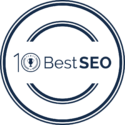DIGITAL MARKETING AGENCY
eCommerce Website Design Agency
Boost Your Search Engine Presence with Our Custom SEO Strategy.
eCommerce Web Design
If you are a small business owner or entrepreneur, you know how important it is to maintain an eCommerce store. Whether you run a storefront from your own website or sell items from sites like eBay and Amazon, your customers need to feel confident in completing transactions with you. In other words, your store needs to be attractive and easy for them to navigate. You can accomplish this by paying attention to the design of your eCommerce store, but that usually entails a whole lot of money.
However, there is a way to create a beautiful online store without spending too much money. And the secret lies with Shopify’s eCommerce design. If you know how to use Shopify’s wide range of eCommerce design tools, you’ll be able to create a stunning online store without breaking the bank.

WordPress WooCommerce
We can create custom WordPress websites using the Wootric Woocommerce plugin. This plugin is an extension that integrates with our WordPress website to allow for e-commerce functionality. The Wootric Woocommerce plugin includes an online store system that can be easily integrated with our WordPress site design, as well as tweakable design settings to tweak the theme for your specific needs.
For eCommerce websites, designers are always looking for ways to help customers navigate through your site without getting lost or discouraged along the way. One way to attract customers is with a visually appealing design. A good eCommerce website design helps the customer find their way through your website without getting confused or thinking you are trying to sell them something or scam them.

Magento Ecommerce Web Design
eCommerce design is an important component of modern web design and it’s important to be knowledgeable about this subject. There are a few different qualities and aspects that set eCommerce and traditional website design apart, which we’ll cover in some depth.
The specific needs of an eCommerce site can include features such as price comparisons, product-specific pages, the ability to make purchases online, store credit card information for easy payment on new orders (without re-entering it), monitoring inventory levels, cross-selling related products on the site (e.g. when you add a product to your cart, that item can be added to a list of related items), and several others.

B2C eCommerce Platforms
Business-to-consumer refers to eCommerce platforms targeting consumers, typically retail stores. These include eCommerce websites, mobile apps, and marketplaces. Business owners should develop a clear understanding of their targeted customer based on research activities such as:
Evaluating personas, user profiles, and co-creation workshops can help evaluate if the site’s design is on track. Rough prototyping and creating low-fidelity wireframes can allow users to explore ideas and concepts while reducing development costs.

B2B Marketplaces
Building secured, fast, and customized eCommerce web design platforms for small and medium enterprises. We offer custom eCommerce web design tailored to B2B Marketplaces as well as expert consulting. The goal of B2B marketplaces is to link buyers and sellers. The goal of a B2B marketplace is to facilitate trades between buyers and sellers, hence the need for a business to have an online presence. This means that The online presence of a business can be used to attract potential partners. In order to succeed in the competitive world of eCommerce, your business website should be fast, secure, and easily navigable.

CMS Integration
We integrate eCommerce platforms like PrestaShop, OpenCart, Zen Cart, osCommerce, Magento, WooCommerce, and Shopify into our Websites. We customize web pages and content to create a personalized customer experience.
Easy navigation is crucial in eCommerce websites, so we design intuitive menus and interfaces that allow your customers to find what they’re looking for with ease. Product development is an important aspect of eCommerce websites, which is why we spend time creating eye-catching graphics, illustrations, and color schemes that will appeal to your shoppers.

Migration & Upgrade
What is the best way to convert an existing website (from an old format)—or migrate—to eCommerce?
Many eCommerce websites are designed with open source CMS systems like Magento, WordPress, PrestaShop, and WooCommerce. There are also services like Shopify or Squarespace that can be used as a platform for your online store (for relatively low cost). When it comes to design, conversion of images and branding elements will need to be dealt with on a case-by-case basis.

API Integration
There are a number of great eCommerce websites that utilize APIs to give you the opportunity to build your own eCommerce site. APIs provide an easy way for two different parties to exchange information without having to go through the hassle of developing a database and website engine.
integrating advanced APIs such as PayPal, FedEx, QuickBooks, Google Analytics API, and more. Ecommerce websites that use APIs add an extra layer of service to their eCommerce website that allows third parties to add additional functionality to the site.
The addition of a third-party API will not only increase the number of options for your eCommerce business but will also bring in a new stream of revenue from the company providing the API. If you already have a successful eCommerce website and want to create your own brand, this is a sure way to do so and there is an opportunity for greater returns.

eCommerce SEO
One of the most important factors for a successful online store is Search Engine Optimization. The faster and more often your store appears on search engine results pages, the more customers you will get. But how does one go about optimizing an eCommerce website to rank higher in searches?
We have gathered some valuable tips from SEO experts that can help you improve your site’s ranking and get a lot of traction on the internet.

Pricing plans and options
Simple, flexible, and predictable pricing. Choose which package is best suited for you.
Need more? Let's get in touch!
eCommerce Website Design Case Studies
When it comes to SEO and digital marketing, only results matter.
Check out real websites, projects and campaigns.
Keyword targeting
Massa eget egestas purus viverra accumsan in nisl. Ornare suspendisse sed nisi lacus sed.
Ranking protection
Massa eget egestas purus viverra accumsan in nisl. Ornare suspendisse sed nisi lacus sed.
Boost your sales, engage with customers, and create a Strong Digital Presence
SEO Expert Agency is known for its 360-degree marketing approach to put your brand in front of potential customers exactly when they need the products/services.
0 +
0 %
Why Choose an SEO Expert Agency As Your Trusted eCommerce Website Design Services Provider?
SEA Web Design is a team of professionals focused on providing innovative, custom design solutions that can help your business reach an audience. We work closely with you to understand the core aspects of your business and identify how we can best help you achieve success. In order to do so, we offer a wide range of eCommerce website design services including sales conversion optimization services and mobile website optimization services. With many years of experience in their respective fields, our team is confident that they have the skills necessary to bring your business to the next level.
SEA is a completely custom eCommerce website development company. Our clients are able to enjoy a top quality product or service that is designed, developed and delivered with the highest level of attention to detail. We understand that our clients should be able to focus on their business instead of worrying about the constant stream of phone calls and requests from vendors, contractors and consultants. At SEA, we aim to make your online shopping experience as easy as possible by completing the entire project from start to finish swiftly, efficiently and without hassle.

We love to help. Seriously.
Still not sure what you need? Give us a call. We’re happy to help, even if you’re not a customer. We're here 24/7/365. Call anytime. (704) 999-9050
Your Questions, Our Answers
A list of frequently asked questions to help you understand how it works.
1. About Our eCommerce Website Design & Development Services
SEO Expert Agency is a web design company that specializes in eCommerce web design. We offer an array of services related to eCommerce web design and development including:
– Logo and branding
– Marketing materials (web banners, social media graphics, etc)
– Website Design/Development
– SEO strategy
– Digital Marketing Strategy (social media promotion, email marketing)
– Shopify Development – migration and customization
The companies we work with range from small local boutiques to large enterprises with national sales. We have worked with clients in the Beauty, Bedding, Automotive, Apparel, Shoes & Accessories, Furniture, Jewelry & Accessories, and Electronics industries.
Creating interactive and feature-packaged websites with a unique look and feel is a better alternative to a cookie-cutter approach. We utilize the latest web design trends, from responsive design to clean and simple grids, as well as WordPress functionality. We’ll help you build your website from the ground up to work with any screen size, from very small devices to large desktop monitors.
3. What is E-commerce and what is E-Commerce business?
E-commerce is a market sector where online stores offer goods or services for sale to customers. The phrase ‘e-commerce’ is used to describe the act of selling through virtual storefronts and websites. These can be physical stores or downloadable app versions that allow customers to shop from anywhere in the world. In 2017, e-commerce sales surpassed $1 trillion for the first time, with online retailers such as Amazon, Walmart, and Nike proving to be huge successes.
E-commerce began in the 1980s when the number of people with access to the internet started to increase. In 1994, Jeff Bezos founded Amazon.com, an online bookstore. In 1995 there were fewer than seven million internet users, but by 2000 this had risen to 350 million people and by 2017, this figure has grown to over 2 billion people.
The internet has changed retail practices and how we think about buying goods and services. People can now buy things they couldn’t imagine in the past, buy them more cheaply and faster than they could have before.
Amazon was the first company to introduce e-commerce and is still considered to be a pioneer of the industry. Today there are several e-commerce companies that have become extremely successful. These include eBay, Etsy, Alibaba, Etsy, AliExpress, and eBay. Amazon is also one of many e-commerce retailers that sell their products via a marketplace or an online marketplace where sellers compete for customers.
There are many differences between traditional retail and e-commerce, but they do have some things in common. The primary benefit of e-commerce is that you don’t need to pay for expensive retail premises and stock. You don’t need to hire cashiers or do any kind of paperwork. You can make money from anywhere so you don’t need to be near a big city.
Some people may think the low costs of having an online store outweigh the risks involved with running an online business, but this is not true for all retailers. Even though you can sell your products for a lower price online, there are still costs involved in operating an online business.
E-commerce is a relatively new industry compared to brick and mortar retail and so there isn’t quite as much experience within the sector. Businesses who operate in this sector face the risk of being able to compete against larger retailers and win customers from them. This is due to big companies having more capital, better access to data, and more experience than small-time e-commerce retailers.
5. Which is the best eCommerce platform?
Like many other types of websites, there are different eCommerce platforms out there. When deciding which one you should use for your business, it’s important to take into account different factors in order to find the one that fits you best. The following overview will give an idea of the differences between some of these platforms and why they may or may not be suitable for your situation.
We have put together a small analysis on the Five most popular eCommerce platforms: Magento, Opencart, Shopify, WordPress, and Bigcommerce. Hopefully, it will be useful for you.
Magento: Magento has become one of the most popular eCommerce platforms worldwide.
Magento comes with a tool that can generate your store in just minutes, everything you need to get started is on your computer already. The interface is user-friendly and simple to navigate but the documentation which comes along with it may be a bit complicated for novice users.
Shopify: Shopify is one of the oldest eCommerce platforms out there. The first time it was used was in 2002 by a programmer and a mobile designer in Canada. Over the years, this platform has evolved into one of the most popular ones.
The Shopify interface is easy to use and extremely user-friendly, they have provided tutorials to help you out initially and if you ever get stuck they do provide customer support which responds fast and can answer any questions you may have.
Opencart: Opencart is a free eCommerce software that can be used with almost any type of hosting. The installation process is quite simple, you have to download it from their website and upload it to your hosting service.
Opencart comes with built-in scalability, making it a good choice for small and large businesses alike. The interface is simple enough to navigate but may require some additional help to get your store up and running the way you want it.
BigCommerce: Bigcommerce is a platform that was created in 2008 and has since grown steadily. It offers a wide range of features for your eCommerce store.
The BigCommerce interface is clean and user-friendly, the initial setup can be challenging if you’re not familiar with how eCommerce platforms work but there are tutorials available to help with this process.
WordPress: WordPress is a powerful tool that many people use to create and run a website. It is considered by many to be a great platform for creating eCommerce websites.
WordPress is one of the easiest platforms to set up, and the plugins available will easily give you all the features you need when running your store. You can even find ready-made themes for your store with the click of a button, saving you a lot of time and effort.
Use this information to make an informed decision on which platform fits your needs best.
2. What is E-commerce and types of E-Commerce?
E-commerce is the process of buying and selling goods or services over the internet. This article will break down what E-commerce is, how it works, and its benefits to both consumers and producers.
This post will answer three basic questions: What is E-Commerce? How does E-Commerce work? And What are the benefits of E-Commerce for consumers and producers?
When a customer decides to buy from an online store they enter their payment information on a website that processes credit card transactions or PayPal payments.
Types of E-Commerce:
There are three main types of e-commerce:
Business-to-Consumer: B2C, or Business-to-Consumer, is the most common type of e-commerce. B2C transactions involve a business selling to an individual consumer. The most familiar example of B2C is probably Amazon.
Business-to-Business: B2B, or Business-to-Business, involves a business selling directly to another business. An example of this is an auto manufacturer selling engines to a car manufacturer.
Consumer-to-Consumer: C2C, or Consumer-to-Consumer, is a transaction between two consumers. An example of this would be an individual listing a car for sale on craigslist.
Till now we have discussed the basics of e-commerce, how it works and the types of e-commerce. Now let’s see the benefits that eCommerce provides to both the producers and consumers.
4. How do you design website for eCommerce?
Designing an eCommerce website is tough, there are a lot of different considerations to make and the process can be overwhelming. If you’re looking to design your own eCommerce store or just want an overview of what goes into it, here are some tips for how to design for e-commerce!
-Before understanding how you’re going to use the space and what your users need from the site it is important that you know how people search and shop online. There are two types of users: consultative and transactional. Transactional users care about cost and buy quickly, if a site is difficult to navigate it can be an immediate turn-off (a lot of people aren’t willing to dig through layers of menus). On the contrary, consultative users are looking for inspiration or comparisons. They will take their time when shopping online. This can help us understand how we layout the pages of our eCommerce site and design navigation systems tailored to these persona types.
-When designing a website, always consider your desired goals. This can be very important when considering the pricing structure for your e-commerce store. Will you use a “directional” and “controlled” pricing layout or will you keep the prices flatter through the course of the site? The former allows the consumer to pay how much they want from start to finish (a paid sample, gift box, subscription filling up, dash of free shipping) while the latter forces them to think about prices early in their shopping experience.
-When constructing the checkout page it is important to consider how you will get the information you need from your customers. Timing is key here, if you ask for too much information you can scare off potential buyers and if you don’t ask for enough then you won’t have the data necessary to send out a shipment quickly or even make pricing changes in the future.










